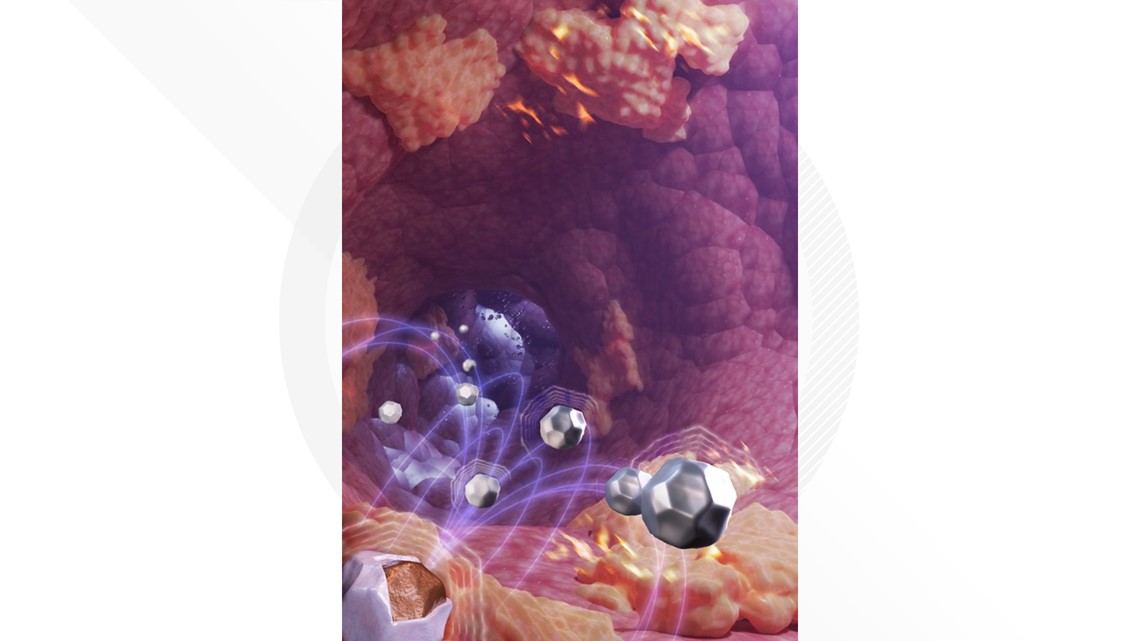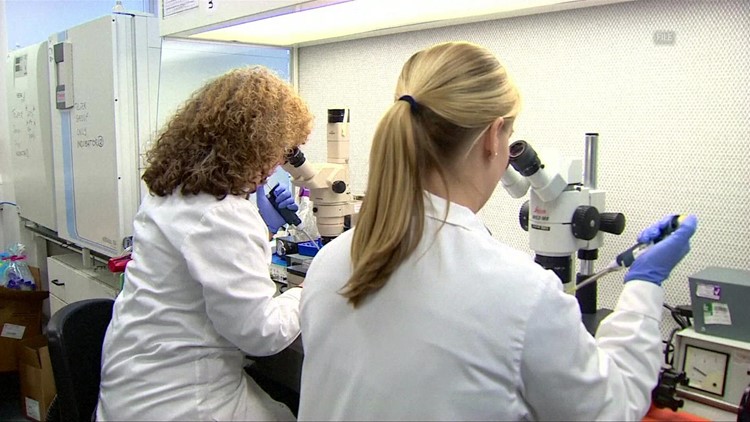CORVALLIS, Oregon — Oregon State University scientists have taken nanotechnology to a new level targeting cancer cells. They have developed a new heat-efficient nanoparticles, improving their previous cancer fighting ability.
"So technically using these nanoparticles we heat the cancer tissue from inside not from outside," said Oleh Taratula a professor at OSU College of Pharmacy and one of the lead scientists on the study.
What are nanoparticles?
Nanoparticles are extremely small, on a near atomic scale, and undetectable to the human eye. But these nanoparticles can do some powerful things.
Magnetic nanoparticles have previously been used to treat cancer by being injected directly into cancerous tissue. When exposed to an alternating magnetic field, the particles heat up and kill cancer cells, or hasten their growth.


The new particle developed by nanoscientists at OSU is potentially and capable of being introduced intravenously into the human body. From there, they find the cancer and attack it.
So far they've found success in laboratory trials on mice with ovarian cancer. Their work showed the particles found the hard-to-reach cancer cells. And the heat created by the nanoparticles they developed get hotter than any others before — making them very effective.
“We developed new nanoparticles that have very high heating efficiency and these magnetic nanoparticles, they can be injected systemically and during a certain period of time let's say 24 hours they can go to the cancer tissue,” said Taratula.
While this type of treatment is years away from helping human cancer patients, Taratula said it is certainly a promising breakthrough.



